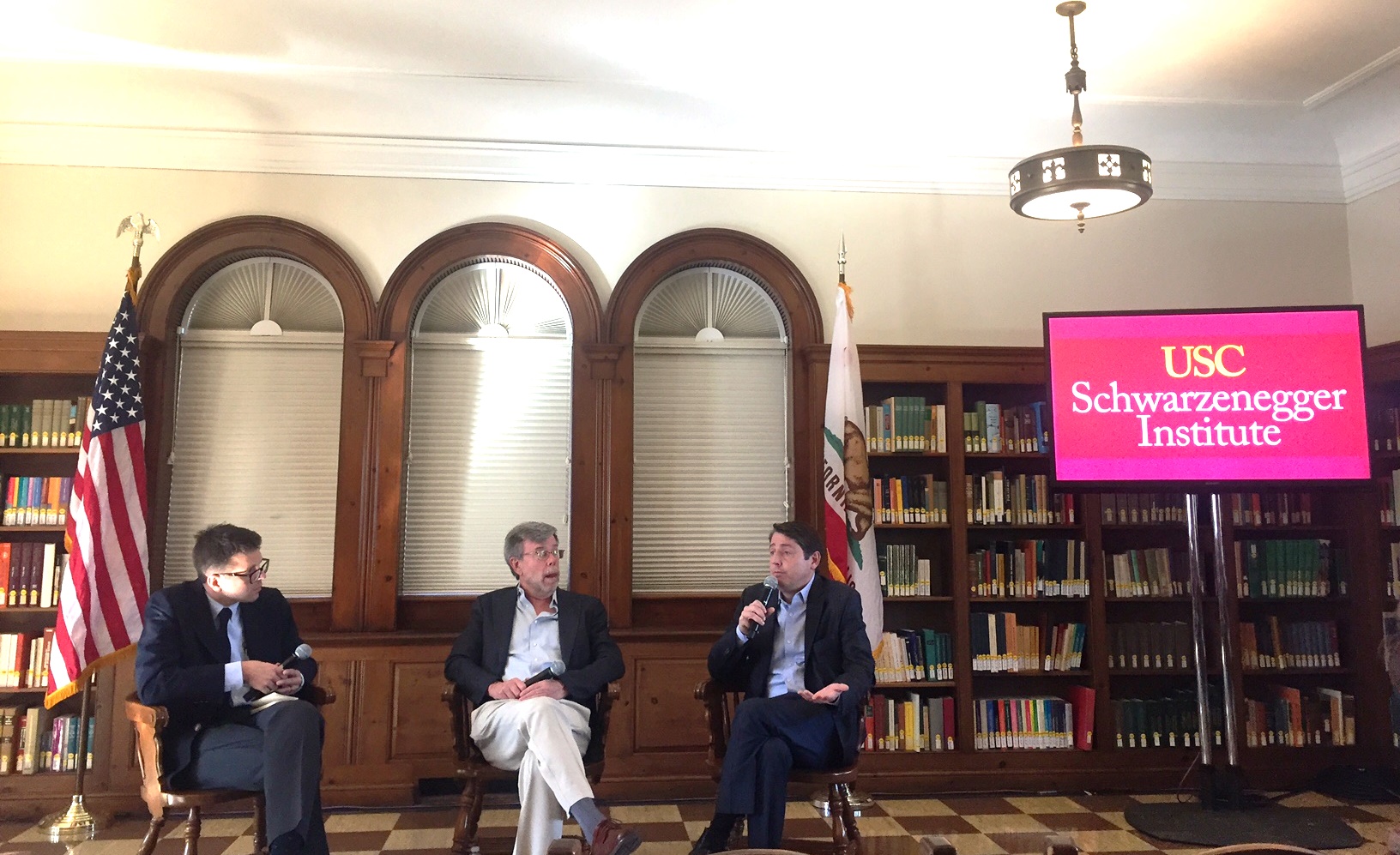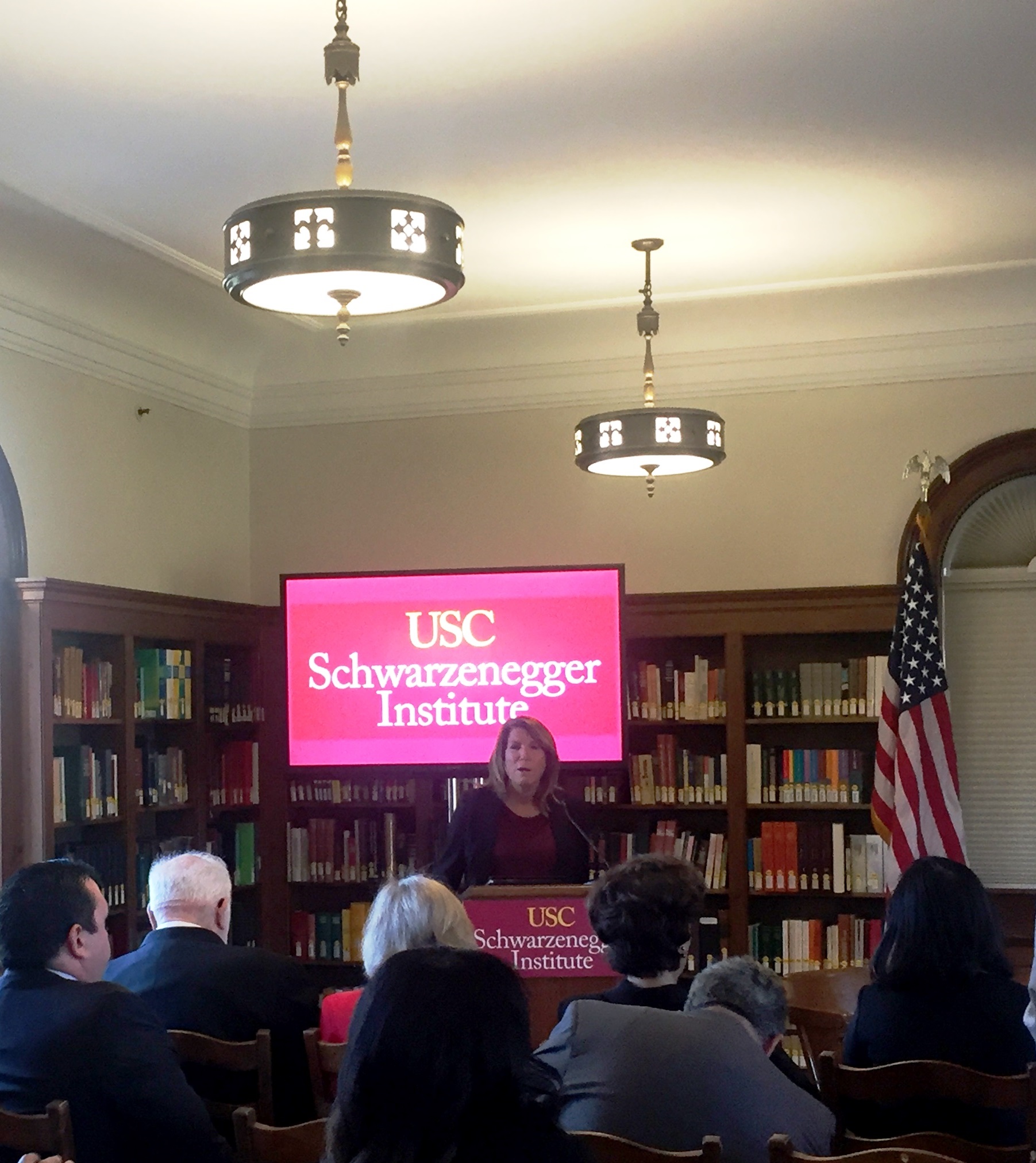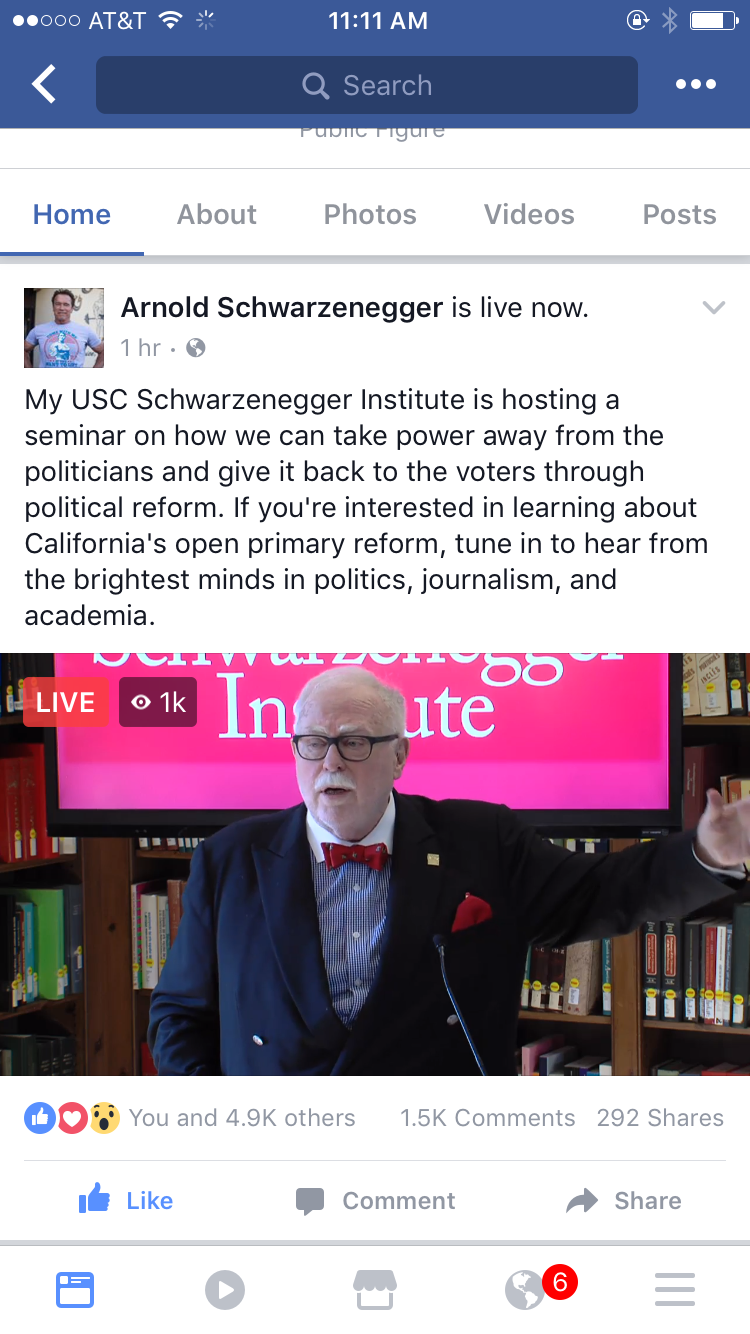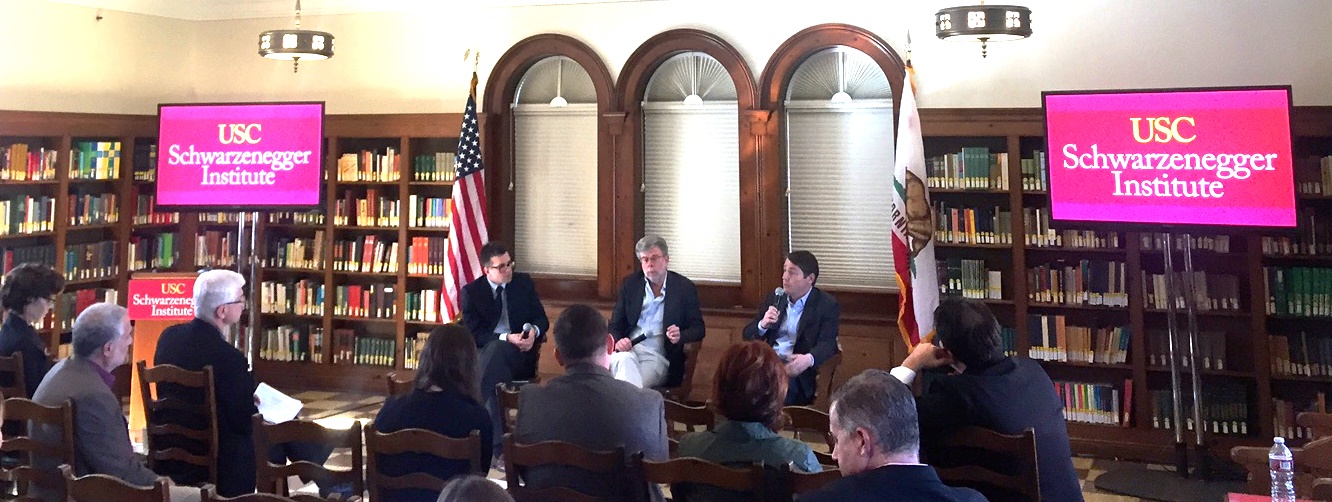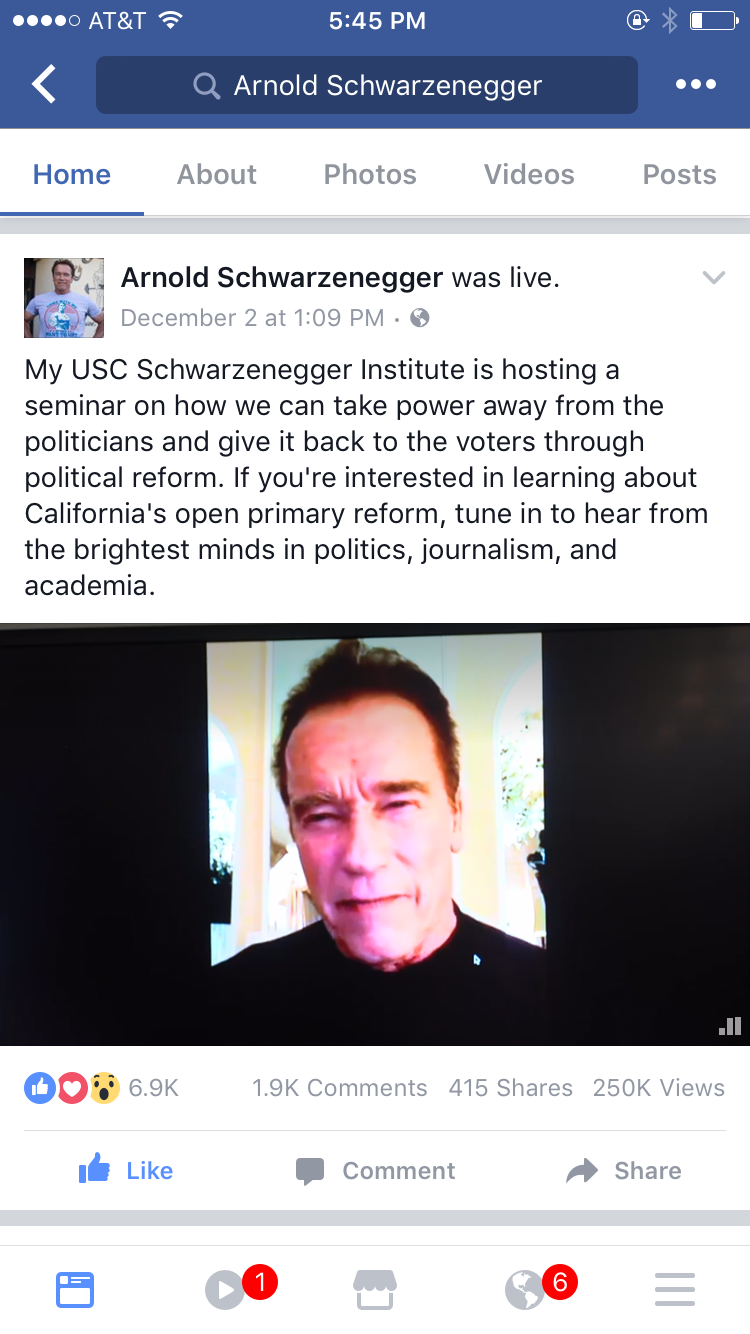The anger, hate and divisiveness of the past year’s Presidential election reflect the growing frustration over the past decade of political gridlock and partisan division in Congress. Voters went to the polls with the desire to shake up politics and elected a government they hope works for them. Similar sentiments were felt in 2003 when California voters recalled a sitting Governor and elected Arnold Schwarzenegger, an “action-hero outsider” to run America’s most populous state and the 6th largest economy in the world.
Schwarzenegger understood the electorate’s feelings and recognized early on that if there is one thing people from across the political and geographical spectrum agree on is that their elected leaders need to put what is best for the people over what is best for their political party. Governor Schwarzenegger recognized that Californian’s wanted their leaders to work across party lines to solve the problems that impact their daily lives and worked with a bi-partisan coalition of good government organizations to pass two political reform ballot initiatives in 2010.
The first, the “Voters First Act” , focused on redistricting reform to end gerrymandering of districts. The second was the top-two open primary, which voters hoped would lead to electing more centrist representatives as well as empowering the ever-growing group of independent voters.
The USC Schwarzenegger Institute has continued working with this good government coalition across the U.S. helping citizens in many states that seek reforms like those passed in California. This work has taken many forms, including commissioning research to look at the impact the two California reforms have had and to see if they have produced results consistent with expectations. Three reports have already been released , and Institute Faculty Research Fellow Christian Grose has been invited to present these findings at a number of other universities across the country.
Grose’s most recent study looked at the top-two open primary through the lens of the U.S. Senate race between two democratic party candidates Kamala Harris and Loretta Sanchez.
The Institute believes that both research and real world perspective are relevant when studying public policy issues and hosted a forum at USC on December 2nd that examined both the data and politics behind the recent U.S Senate race. The program began with a series of presentations from leading political scientists and concluded with a spirited discussion between Sean Clegg and Bill Carrick, the lead political strategists for the Kamala Harris and Loretta Sanchez campaigns. Their insightful conversation was moderated by David Siders, Senior Reporter at POLITICO. Clegg and Carrick shared behind the scenes insights on their respective campaign’s decision making considering the top-two system and their personal feelings – both positive and negative – on the top-two primary reform.

